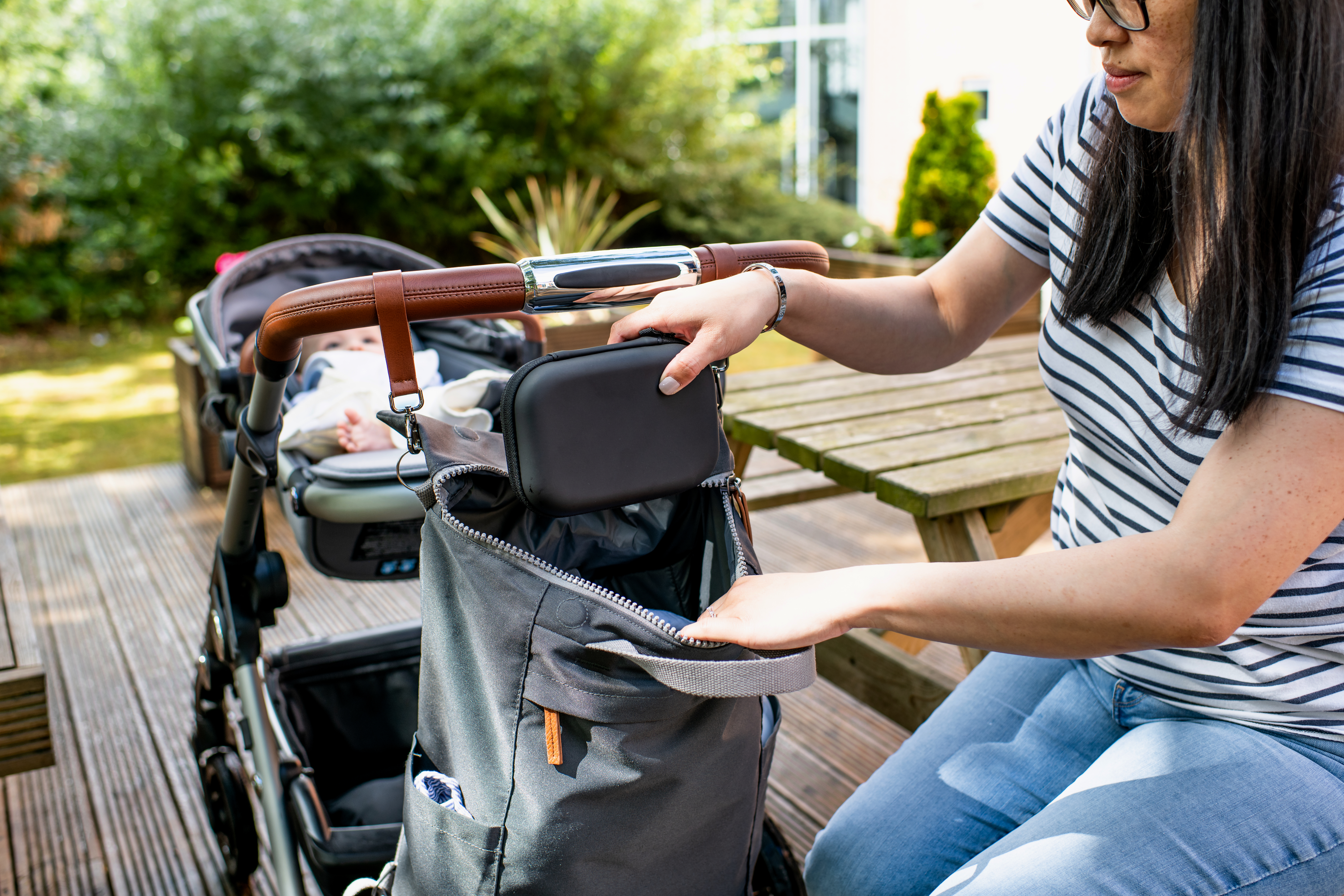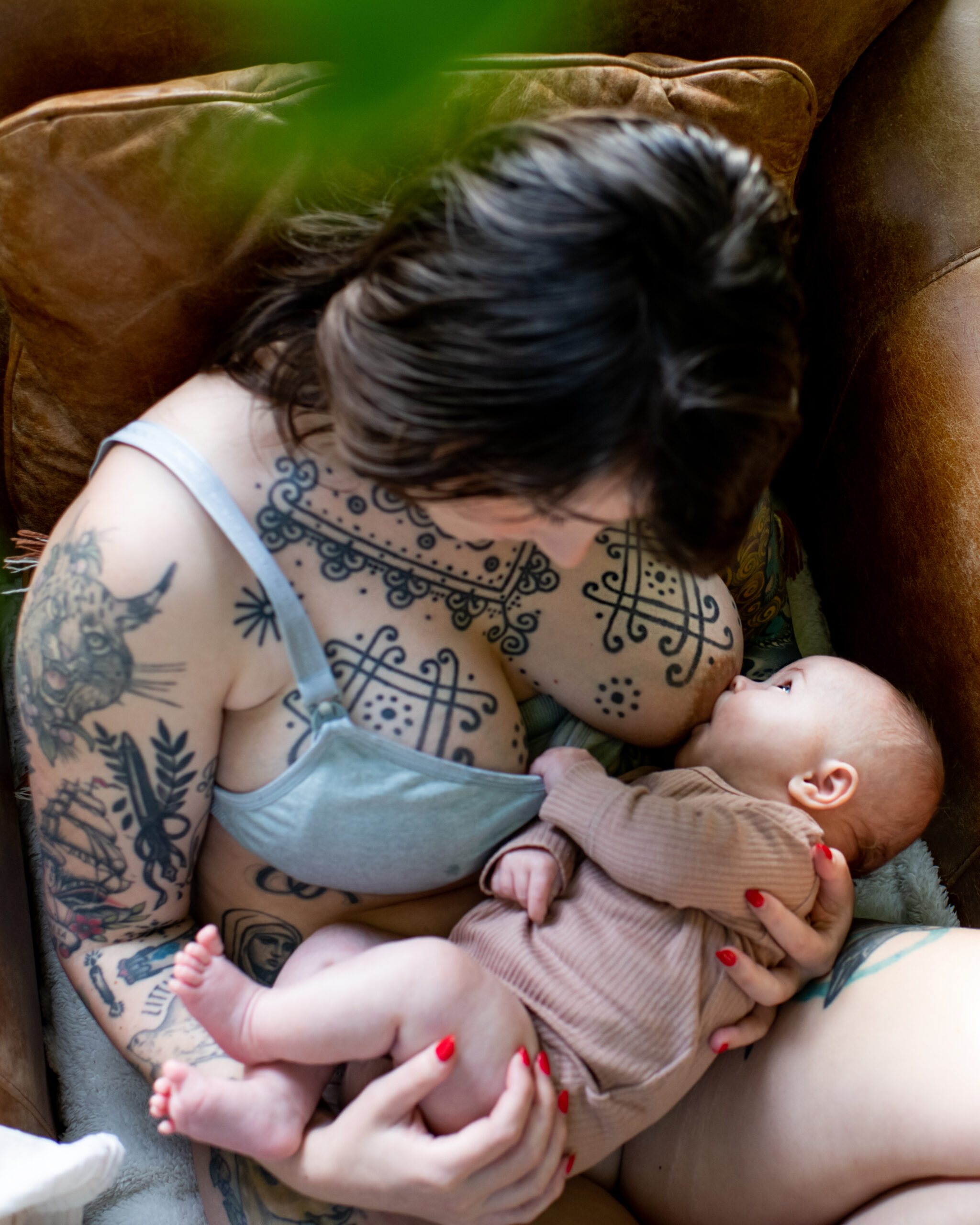We know there are certain foods to be aware of during pregnancy, but what about once baby arrives?
If you’re just starting out on your breastfeeding journey, you’re probably wondering what you can and can’t eat. To help you out and give you some reassurance, we’ve pulled together this guide.
In general, eating a varied diet and consuming enough calories should help to ensure you’re meeting the recommended energy and nutrient requirements you need to produce milk for your baby and keep yourself healthy.
A healthy balanced breastfeeding diet
- Fruit and vegetables: At least five portions every day.
- Starchy carbohydrates: Bread, pasta, rice (wholemeal where possible) and potatoes.
- Protein: Beans and pulses, lean meats and fish, nuts and seeds, eggs, dairy and soya products.
- Dairy foods or fortified plant-based alternatives: These provide calcium and protein.
- Fibre: Wholegrains, fruits, vegetables, beans and pulses are all good sources of fibre and can help with bowel problems and constipation which some women experience after giving birth.
- Iron-rich foods: Breastfeeding mothers need the same amount of iron as they do during pregnancy. While the amount of iron in your breast milk won’t be affected by your intake, it is important for your health to keep your iron levels up in order to avoid anemia and associated health problems. Red meat is the preferred source of iron for breastfeeding mothers, as iron in meat is in a form very easily and readily absorbed by the body.
- Plenty of fluids: While there’s no definitive amount, it’s always good to drink plenty of un-caffeinated, unsweetened drinks. It is also good practice to keep a drink of water within reach while breastfeeding, as it is thirsty work.
- Vitamin D: A balanced diet should give you all that you and your baby needs. However, if you don’t get much daily sunshine in the winter months, then one of the best supplements to add to your breastfeeding diet is vitamin D. Look in the pharmacy for one designed specifically for breastfeeding mums.
For vegan or vegetarian mothers who are breastfeeding, the Vegan Society has some helpful information on what to consider in your diet and which supplements you can take.
Should I be eating more when breastfeeding?
When it comes to extra calories and nutrient requirements during breastfeeding, there is no specific recommended intake. While breastfeeding does require energy, the amount will be different for everyone, and depends on lots of factors like how much you’re breastfeeding and for how long.
If you breastfeed exclusively for the first six months, you’ll need approximately 300-400 extra calories a day. Overall, it’s recommended that breastfeeding parents drink when thirsty and eat when hungry to support your energy levels and milk supply!
What food and drink should be avoided when breastfeeding?
There are many old wives’ tales surrounding foods eaten when breastfeeding but actually, the simple answer is that you can eat anything in moderation.
- Caffeine: Caffeine is a stimulant and can make your baby restless. So, keeping your caffeine intake low when breastfeeding is recommended. The recommendation for pregnancy is 200mg of caffeine per day, equal to about one mug of filter coffee or two mugs of tea.
- Alcohol: It’s recommended not to drink any alcohol for the first three months when you’re breastfeeding. After that, breastfeeding parents are advised to drink no more than one or two units of alcohol, once or twice a week.
- Drugs and medicines: Aspirin, codeine, phenylephrine and guaifenesin are not advised. Contact your doctor for a suitable substitute.
- Fish: Fish is a really great source of a range of nutrients, including essential fatty acids, protein and iodine. There are certain fish that have higher levels of mercury and pollutants. So, there are recommendations to limit these whilst breastfeeding.
- Oily fish: It’s recommended to limit oily fish to two portions per week (one portion is 140g) due to higher levels of certain pollutants that can build up in the body when eaten regularly and could be harmful to your baby.
- White fish: Most white fish is fine to eat without limits, but sea bream, sea bass, halibut, turbot and rock salmon contain similar pollutants to oily fish and should be limited to two portions per week as well.
- Shellfish: The only recommendation for shellfish is to limit the amount of brown crab meat eaten.
- Others: Shark, swordfish and marlin should be limited to once per week due to the higher levels of mercury, although this is the same recommendation as for all adults.
What about allergens?
When it comes to what you eat while breastfeeding, there aren’t any recommendations to avoid allergens, such as nuts or eggs, unless you are allergic yourself. However, traces of the foods you eat can pass through breast milk and there is a chance that your baby might be sensitive to some foods. If you suspect your baby is reacting to anything from your breastmilk, seek medical advice before cutting anything out of your diet.


